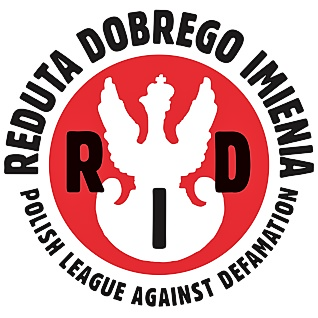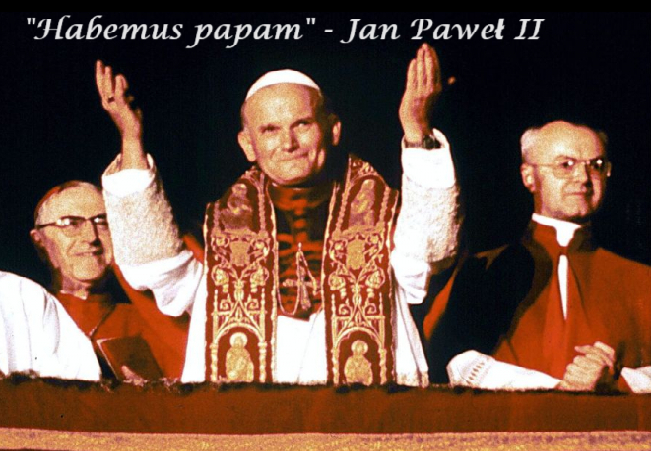16 October 1978 was an important day for the whole world. Prof. Andrzej Paczkowski, an eminent historian and at the same time president of the Polish Mountaineering Association at the time, recalled that on that day he was in constant contact with his colleague Andrzej Skłodowski, an employee of the Polish Press Agency, who listened attentively to the information provided by Reuters. Paczkowski’s interest in the agency’s communiqués was not accidental. The historian knew that the Polish alpinist Wanda Rutkiewicz was heading for the summit of the highest mountain in the world – Mount Everest. Rutkiewicz had the chance to become the first Pole and European and the third woman in the world to climb the peak measuring almost 8,500 metres. At the same time, Paczkowski was aware that a conclave was underway in the Vatican to select the 264th head of the Catholic Church, following the sudden death of Pope John Paul I. Most significantly, however, neither the president of the PZA nor Skłodowski expected to witness the historic moment on 16 October, which Paczkowski depicted years later in this way: „After some time, Andrzej calls and says: 'Wanda is reaching the southern apex’, and in a moment: 'there will be no information because they have elected a pope’. I say, „Oh [uncensored word]!” obviously because nothing will be known about Wanda (laughs). „And do you know who they elected? (laughter)… That’s how I found out…” that the new Pope was Karol Wojtyla, the Metropolitan of Krakow. Anyway, a few months later, in June 1979 to be exact, John Paul II met with Wanda Rutkiewicz and said: „It was good fortune that we both managed to go up so high on the same day”.
Thus, on 16 October 1978, the incumbent Cardinal Karol Wojtyła was elected head of the Catholic Church. The background to this event is shrouded in mystery to this day, as is the case with every conclave. Nevertheless, historians estimate that out of 111 cardinals, as many as 99 supported Wojtyła’s candidacy. Two high cardinals, the Pole Stefan Wyszyński and the Austrian Franz König, did a great deal in this regard. The former convinced Wojtyla to accept the eventual election. The latter began to campaign extensively among the cardinals present at the conclave in favour of the Krakow metropolitan.
Thus, on the eighth vote, the choice fell on the Pole. At around 6.18 p.m., the people and guests of Rome saw white smoke above the Sistine Chapel. St Peter’s Square began to fill momentarily with visitors. Less than half an hour later, a delegation of Church hierarchs stepped out onto the balcony of St Peter’s Basilica and Cardinal Pericle Felici announced the all-too-famous formula: „Annuntio vobis gaudium magnum: habemus Papam, Eminentissimum ac Reverendissimum Dominum, Dominum Carlum, Sanctæ Romanæ Ecclesiæ Cardinalem Wojtyla, qui sibi nomen imposuit Joannis Pauli”.
This event proved to be a watershed moment for the world, for Europe and, above all, for the new Pope’s homeland, Poland. John Paul II helped to pull his country out of the communist shackles. When he came to the Vistula River on pilgrimage during the People’s Republic of Poland, he poured hope into the hearts of his countrymen and kept their spirits up. This was extremely important for a nation battered and crushed by communism, which very quickly realised that it had then received a great gift. For this reason, the Poles pinned great hopes on this decision by the cardinals.
How Polish society initially reacted to the election of Wojtyla to the See of Peter is perfectly illustrated by the situation in Krakow. The priest Bronisław Fidelus, upon receiving the official information, called a nun who was ministering in St Mary’s Church and told her to approach the priest who was leading the service in this legendary temple and tell him to pray „for the new Holy Father, who was elected Karol Wojtyła”. The surprised sister replied with some indignation: „Don’t be ridiculous, priest!”.
Despite the disbelief, the news of the election of a new pope spread very quickly through the country. The joy of the event was immense, but no organised demonstrations or rallies took place in the country. The people of Krakow, however, showed spontaneity. As late as 16 October, a crowd of residents spontaneously gathered on the Main Square. People then attended a mass for the intention of John Paul II at St. Mary’s Church. In addition, a crowd of several hundred young people gathered in front of the Wawel Cathedral and began to sing patriotic and religious songs and demanded that a mass be celebrated in the cathedral. The priests met their expectations. The service, which began at midnight, ended with the hymn 'Boże coś Polskę’ (God save Poland). In addition, the Sigismund Bell, which is rung only at important moments for the Polish nation, began to toll.
Almost all Poles rejoiced at the election of John Paul II. An exception in this regard was, of course, demonstrated by the activists of the Polish United Workers’ Party… These, however, kept a very watchful eye on the public mood. Polish enthusiasm worried them greatly. For it must be remembered that when the first shock had passed, masses for the Pope’s intentions began to be celebrated throughout the country, and Polish and Vatican flags appeared in the windows of thousands of homes. Poles felt incredibly proud that one of the most important and influential people in the world had become their countryman. They also had hope, for great changes. This was brilliantly illustrated by the prominent publicist Stefan Kisielewski, who stated: „the wind of history blew over the country, where, it seemed, history had stood still for thirty years.” Some, such as the rector of the Catholic University of Lublin, on the other hand, stated that the election of Karol Wojtyla to the See of Peter was a moment comparable to the baptism of Poland by Mieszko I.
This is what the representatives of the elite claimed. Poles were spontaneous in their reaction. Some wept with emotion, others laughed. Still others confessed to their neighbors: „My neighbor, as soon as she saw me, ran up and, crying with emotion, shouted joyfully: Mrs. Krysia! Did you hear? We have a Pole, a Pole!!! Pope. You know – I am an atheist, but this is the greatest happiness for Poland. I am so happy.”
Poles also showed extraordinary unity on October 22, 1978, which was when the inauguration of Karol Wojtyla’s pontificate took place. Polish streets froze at the time, as the communist authorities made a surprising gesture and allowed the event to be broadcast. Thanks to this, the whole mass of Poles heard to „fear not” and saw the tribute that John Paul II paid to his great teacher Cardinal Stefan Wyszynski. However, this was only a prelude to the „earthquake” that was to take place in Europe in the following years.

